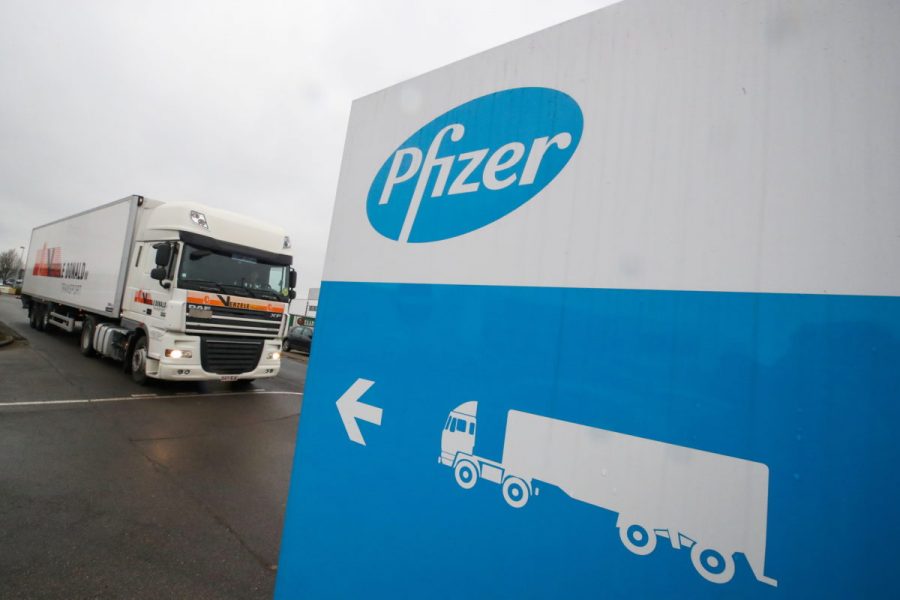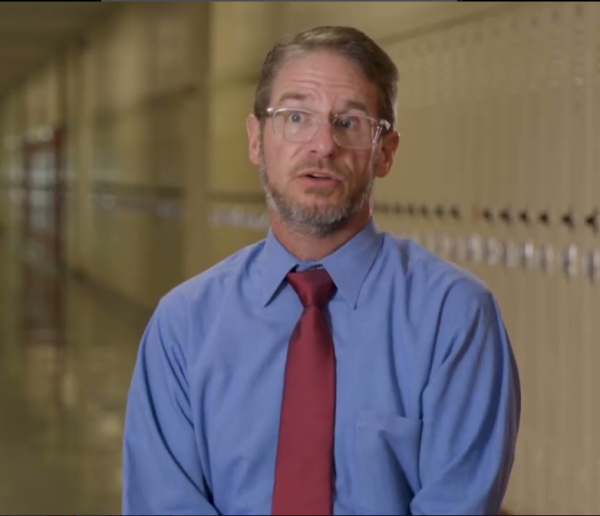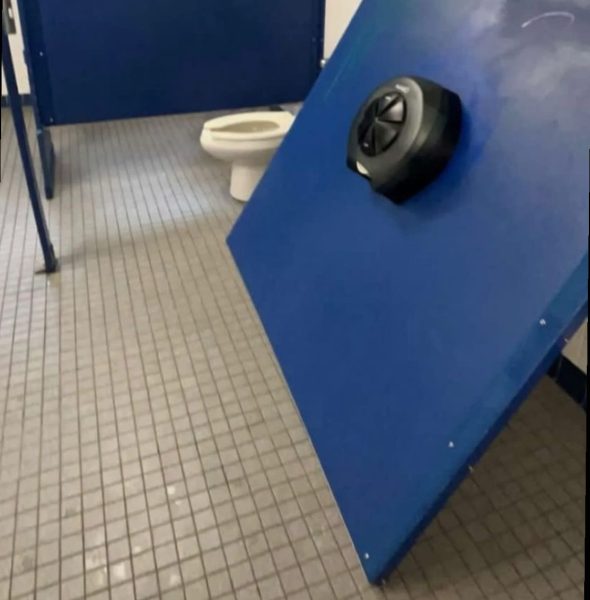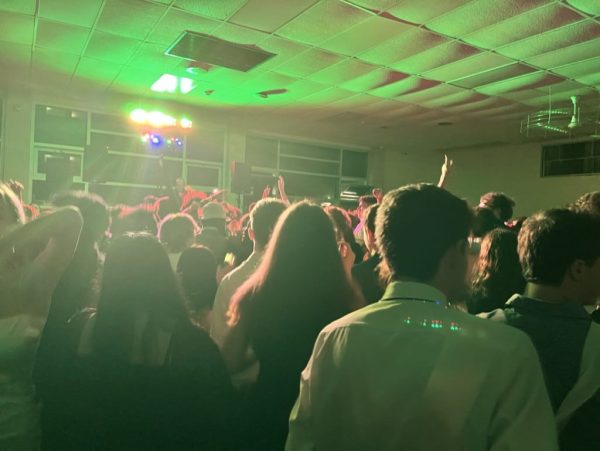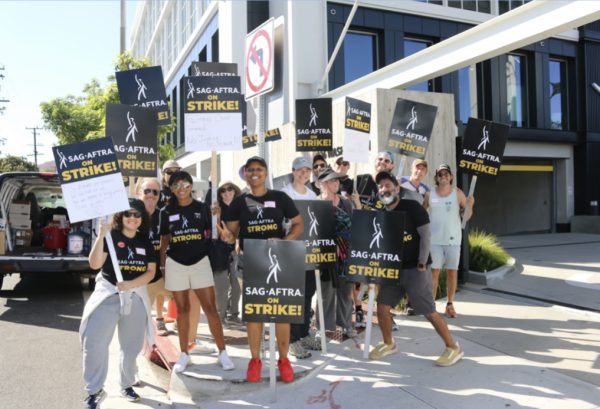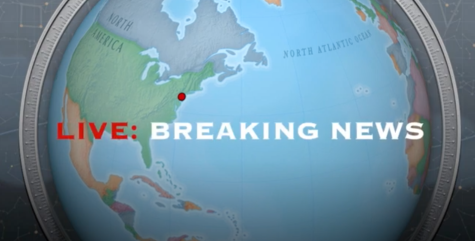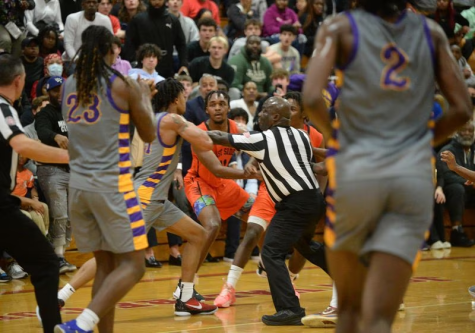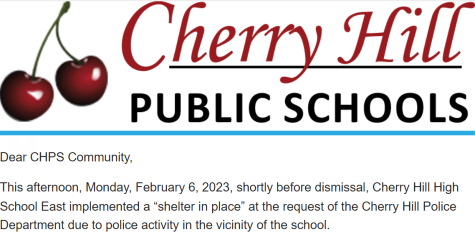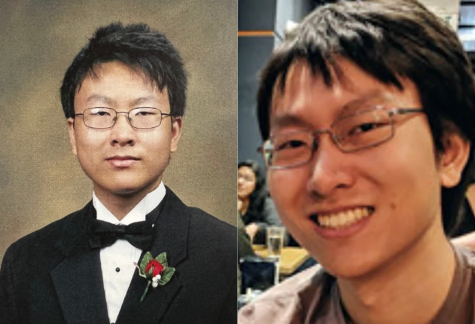COVID-19 vaccine gets out
A refrigerated truck leaves the Pfizer plant in Puurs, Belgium.
On December 11 this year, the FDA (Food and Drug Administration) approved the request for the emergency use of the new Covid-19 vaccine created by drug makers Pfizer and BioNTech. This was shortly followed by the CDC (Centers for Disease Control and Prevention) who advised the use of this vaccine. Many countries, including the United States, already have millions of doses of the vaccine, ready to be given out to the people who need it most. Operation Warp Speed, the process by the federal government to make, test, approve, and release a coronavirus vaccine, has fulfilled its plan, so how are different countries responding to the clearance of this vaccine?
The Pfizer vaccine must be stored at below freezing temperatures, making it more difficult to transport. Pfizer has released a plan for how they will transport the vaccine, saying it will be moved using air and road methods. Pfizer said “We have developed detailed logistical plans and tools to support effective vaccine transport, storage and continuous temperature monitoring,” which so far has proved to be an efficient way to transport the vaccine, as many people all over the world have already started receiving it.
The United Kingdom was the first country to approve the Pfizer vaccine. On December 2nd, UK regulators granted emergency authorization for the use of the vaccine. The first people receiving the vaccine are healthcare workers and care-home staff and residents. This is only 7 months after the first clinical trials began.
In the United States, confusion occurred as state officials all around the country heard the news that their new shipment of the vaccine was cut drastically. The Trump administration has been back and forth with Pfizer, negotiating deals to receive millions of more doses than they already have. Pfizer, who planned to give the states another 100 million doses of the vaccine said that federal officials have turned down the request. This week, live news stations showed President-elect Joe Biden receiving the Pfizer vaccine, as Biden said “I’m doing this to demonstrate that people should be prepared when it’s available to take the vaccine,” “There’s nothing to worry about.” It is hopeful most people living in the U.S. will agree to take the vaccine.
China is also set to receive 100 million doses of the vaccine in the new year. The Shanghai Fosun Pharmaceutical Group said that they will buy the 100 million doses, pending approval. Many companies in China have also been working on creating a vaccine, many of them in late-stage trials. President Xi Jinping has promised to make the Chinese vaccines a “global public good” and they are expected to approve 600 million doses of different vaccines by the end of this year.
Canada, another country that is moving fast on vaccinations was the third to authorize the emergency use of the vaccine. However, it’s not a competition. The senior medical advisor of Canada’s health department said “We are not in a race with any other regulator. What we are trying to do is beat this virus.” Pfizer is set to supply Canada with 76 million doses of the vaccine. Canadian Prime Minister Justin Trudeau claimed he is hoping that the vaccine along with fiscal policies would fuel an economic recovery by the middle of 2021.
While it’s hard to tell how these next few months will play out, as many people start the process of getting vaccinated for covid-19, the good news is that we all know it is a step in the right direction by starting the distribution of the vaccine.

